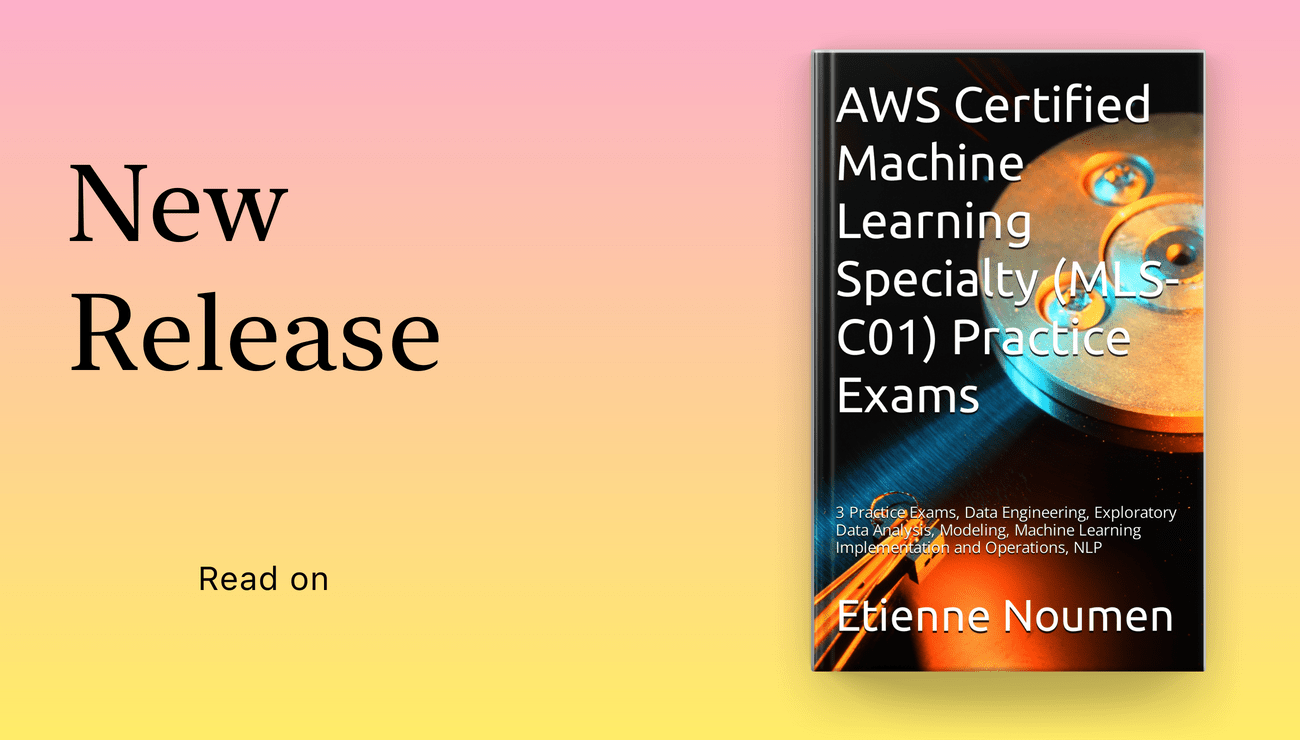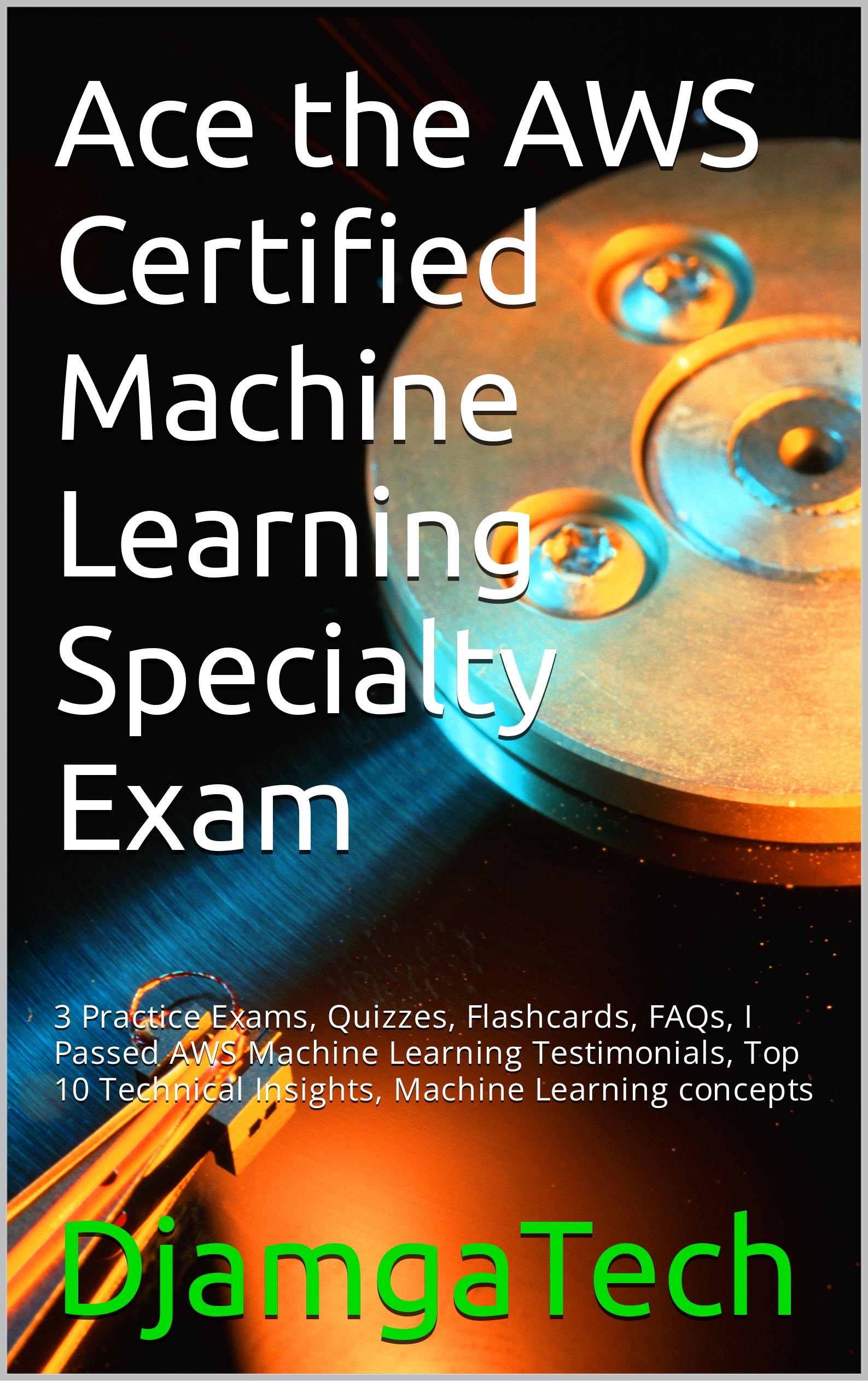What is the single most influential book every Programmers should read
There are a lot of books that can be influential to programmers. But, what is the one book that every programmer should read? This is a question that has been asked by many, and it is still up for debate. However, there are some great contenders for this title. In this blog post, we will discuss three possible books that could be called the most influential book for programmers. So, what are you waiting for? Keep reading to find out more!
- Bjarne Stroustrup – The C++ Programming Language,
- Brian W. Kernighan, Rob Pike – The Practice of Programming,
- Donald Knuth – The Art of Computer Programming,
- Ellen Ullman – Close to the Machine,
- Ellis Horowitz – Fundamentals of Computer Algorithms,
- Eric Raymond – The Art of Unix Programming,
- Gerald M. Weinberg – The Psychology of Computer Programming,
- James Gosling – The Java Programming Language,
- Joel Spolsky – The Best Software Writing I,
- Keith Curtis – After the Software Wars,
- Richard M. Stallman – Free Software, Free Society,
- Richard P. Gabriel – Patterns of Software,
- Richard P. Gabriel – Innovation Happens Elsewhere,
- Code Complete (2nd edition) by Steve McConnell,
- The Pragmatic Programmer,
- Structure and Interpretation of Computer Programs,
- The C Programming Language by Kernighan and Ritchie,
- Introduction to Algorithms by Cormen, Leiserson, Rivest & Stein,
- Design Patterns by the Gang of Four,
- Refactoring: Improving the Design of Existing Code,
- The Mythical Man Month,
- The Art of Computer Programming by Donald Knuth,
- Compilers: Principles, Techniques and Tools by Alfred V. Aho, Ravi Sethi and Jeffrey D. Ullman,
- Gödel, Escher, Bach by Douglas Hofstadter,
- Clean Code: A Handbook of Agile Software Craftsmanship by Robert C. Martin,
- Effective C++,
- More Effective C++,
- CODE by Charles Petzold,
- Programming Pearls by Jon Bentley,
- Working Effectively with Legacy Code by Michael C. Feathers,
- Peopleware by Demarco and Lister
- Coders at Work by Peter Seibel,
- Surely You’re Joking, Mr. Feynman!,
- Effective Java 2nd edition,
- Patterns of Enterprise Application Architecture by Martin Fowler,
- The Little Schemer,
- The Seasoned Schemer,
- Why’s (Poignant) Guide to Ruby,
- The Inmates Are Running The Asylum: Why High Tech Products Drive Us Crazy and How to Restore the Sanity,
- The Art of Unix Programming,
- Test-Driven Development: By Example by Kent Beck,
- Practices of an Agile Developer,
- Don’t Make Me Think,
- Agile Software Development, Principles, Patterns, and Practices by Robert C. Martin,
- Domain Driven Designs by Eric Evans,
- The Design of Everyday Things by Donald Norman,
- Modern C++ Design by Andrei Alexandrescu,
- Best Software Writing I by Joel Spolsky,
- The Practice of Programming by Kernighan and Pike,
- Pragmatic Thinking and Learning: Refactor Your Wetware by Andy Hunt,
- Software Estimation: Demystifying the Black Art by Steve McConnel,
- The Passionate Programmer (My Job Went To India) by Chad Fowler,
- Hackers: Heroes of the Computer Revolution,
- Algorithms + Data Structures = Programs,
- Writing Solid Code,
- JavaScript – The Good Parts,
- Getting Real by 37 Signals,
- Foundations of Programming by Karl Seguin,
- Computer Graphics: Principles and Practice in C (2nd Edition),
- Thinking in Java by Bruce Eckel,
- The Elements of Computing Systems,
- Refactoring to Patterns by Joshua Kerievsky,
- Modern Operating Systems by Andrew S. Tanenbaum,
- The Annotated Turing,
- Things That Make Us Smart by Donald Norman,
- The Timeless Way of Building by Christopher Alexander,
- The Deadline: A Novel About Project Management by Tom DeMarco,
- The C++ Programming Language (3rd edition) by Stroustrup,
- Patterns of Enterprise Application Architecture,
- Computer Systems – A Programmer’s Perspective,
- Agile Principles, Patterns, and Practices in C# by Robert C. Martin,
- Growing Object-Oriented Software, Guided by Tests,
- Framework Design Guidelines by Brad Abrams,
- Object Thinking by Dr. David West,
- Advanced Programming in the UNIX Environment by W. Richard Stevens,
- Hackers and Painters: Big Ideas from the Computer Age,
- The Soul of a New Machine by Tracy Kidder,
- CLR via C# by Jeffrey Richter,
- The Timeless Way of Building by Christopher Alexander,
- Design Patterns in C# by Steve Metsker,
- Alice in Wonderland by Lewis Carol,
- Zen and the Art of Motorcycle Maintenance by Robert M. Pirsig,
- About Face – The Essentials of Interaction Design,
- Here Comes Everybody: The Power of Organizing Without Organizations by Clay Shirky,
- The Tao of Programming,
- Computational Beauty of Nature,
- Writing Solid Code by Steve Maguire,
- Philip and Alex’s Guide to Web Publishing,
- Object-Oriented Analysis and Design with Applications by Grady Booch,
- Effective Java by Joshua Bloch,
- Computability by N. J. Cutland,
- Masterminds of Programming,
- The Tao Te Ching,
- The Productive Programmer,
- The Art of Deception by Kevin Mitnick,
- The Career Programmer: Guerilla Tactics for an Imperfect World by Christopher Duncan,
- Paradigms of Artificial Intelligence Programming: Case studies in Common Lisp,
- Masters of Doom,
- Pragmatic Unit Testing in C# with NUnit by Andy Hunt and Dave Thomas with Matt Hargett,
- How To Solve It by George Polya,
- The Alchemist by Paulo Coelho,
- Smalltalk-80: The Language and its Implementation,
- Writing Secure Code (2nd Edition) by Michael Howard,
- Introduction to Functional Programming by Philip Wadler and Richard Bird,
- No Bugs! by David Thielen,
- Rework by Jason Freid and DHH,
- JUnit in Action
Source: Wikipedia

What are the concepts every Java C# C++ Python Rust programmer must know?
Ok…I think this is one of the most important questions to answer. According to the my personal experience as a Programmer, I would say you must learn following 5 universal core concepts of programming to become a successful Java programmer.
(1) Mastering the fundamentals of Java programming Language – This is the most important skill that you must learn to become successful java programmer. You must master the fundamentals of the language, specially the areas like OOP, Collections, Generics, Concurrency, I/O, Stings, Exception handling, Inner Classes and JVM architecture.
Recommended readings are OCA Java SE 8 Programmer by by Kathy Sierra and Bert Bates (First read Head First Java if you are a new comer ) and Effective Java by Joshua Bloch.
(2) Data Structures and Algorithms – Programming languages are basically just a tool to solve problems. Problems generally has data to process on to make some decisions and we have to build a procedure to solve that specific problem domain. In any real life complexity of the problem domain and the data we have to handle would be very large. That’s why it is essential to knowing basic data structures like Arrays, Linked Lists, Stacks, Queues, Trees, Heap, Dictionaries ,Hash Tables and Graphs and also basic algorithms like Searching, Sorting, Hashing, Graph algorithms, Greedy algorithms and Dynamic Programming.
Recommended readings are Data Structures & Algorithms in Java by Robert Lafore (Beginner) , Algorithms Robert Sedgewick (intermediate) and Introduction to Algorithms-MIT press by CLRS (Advanced).
(3) Design Patterns – Design patterns are general reusable solution to a commonly occurring problem within a given context in software design and they are absolutely crucial as hard core Java Programmer. If you don’t use design patterns you will write much more code, it will be buggy and hard to understand and refactor, not to mention untestable and they are really great way for communicating your intent very quickly with other programmers.
Recommended readings are Head First Design Patterns Elisabeth Freeman and Kathy Sierra and Design Patterns: Elements of Reusable by Gang of four.
(4) Programming Best Practices – Programming is not only about learning and writing code. Code readability is a universal subject in the world of computer programming. It helps standardize products and help reduce future maintenance cost. Best practices helps you, as a programmer to think differently and improves problem solving attitude within you. A simple program can be written in many ways if given to multiple developers. Thus the need to best practices come into picture and every programmer must aware about these things.
Recommended readings are Clean Code by Robert Cecil Martin and Code Complete by Steve McConnell.
(5) Testing and Debugging (T&D) – As you know about the writing the code for specific problem domain, you have to learn how to test that code snippet and debug it when it is needed. Some programmers skip their unit testing or other testing methodology part and leave it to QA guys. That will lead to delivering 80% bugs hiding in your code to the QA team and reduce the productivity and risking and pushing your project boundaries to failure. When a miss behavior or bug occurred within your code when the testing phase. It is essential to know about the debugging techniques to identify that bug and its root cause.
Recommended readings are Debugging by David Agans and A Friendly Introduction to Software Testing by Bill Laboon.
I hope these instructions will help you to become a successful Java Programmer. Here i am explain only the universal core concepts that you must learn as successful programmer. I am not mentioning any technologies that Java programmer must know such as Spring, Hibernate, Micro-Servicers and Build tools, because that can be change according to the problem domain or environment that you are currently working on…..Happy Coding!
Summary: There’s no doubt that books have had a profound influence on society and the advancement of human knowledge. But which book is the most influential for programmers? Some might say it’s The Art of Computer Programming, or The Pragmatic Programmer. But I would argue that the most influential book for programmers is CODE: The Hidden Language of Computer Hardware and Software. In CODE, author Charles Petzold takes you on a journey from the basics of computer hardware to the intricate workings of software. Along the way, you learn how to write code in Assembly language, and gain an understanding of how computers work at a fundamental level. If you’re serious about becoming a programmer, then CODE should be at the top of your reading list!
Advertise with us - Post Your Good Content Here
We are ranked in the Top 20 on Google
AI Dashboard is available on the Web, Apple, Google, and Microsoft, PRO version
Programming Breaking News
- Laxman loan app Customer Care Helpline Number➕%7569714050 ➕7569714050➕7569714050 Call Now Me.Laxmanby Hhghg (Coding on Medium) on July 26, 2024 at 12:50 pm
Continue reading on Medium »
- How to Start Your First AI Project with Python and OpenAI API.by Kris Ograbek (Python on Medium) on July 26, 2024 at 12:49 pm
The step-by-step guide for beginners (with the full setup).Continue reading on AI Advances »
- Laxman loan app Customer Care Helpline Number➕%7569714050 ➕7569714050➕7569714050 Call Now Me.Laxmanby Hhghg (Coding on Medium) on July 26, 2024 at 12:48 pm
Continue reading on Medium »
- The Sorting Algorithm Cup: Round 2by Batu Senturk (Coding on Medium) on July 26, 2024 at 12:48 pm
Join us for the second round of the Sorting Algorithm Cup. Today we will see Gnome Sort, Heap Sort, Insertion Sort and Merge Sort.Continue reading on Medium »
- Create a Currency Converter with Python from Scratchby Rahul Patodi (Python on Medium) on July 26, 2024 at 12:47 pm
The currency converter project is a Python application that utilizes the Tkinter library for its graphical user interface (GUI). It allows…Continue reading on Wiki Flood »
- Create a Currency Converter with Python from Scratchby Rahul Patodi (Coding on Medium) on July 26, 2024 at 12:47 pm
The currency converter project is a Python application that utilizes the Tkinter library for its graphical user interface (GUI). It allows…Continue reading on Wiki Flood »
- Mpokket loan customer care number✍️//* 8144933033/**/8144933033 Just Call nowby hotagi (Programming on Medium) on July 26, 2024 at 12:46 pm
Mpokket loan customer care number✍️//* 8144933033/**/8144933033 Just Call now Continue reading on Medium »
- Laxman loan app Customer Care Helpline Number➕%7569714050 ➕7569714050➕7569714050 Call Now Me.Laxmanby Hhghg (Programming on Medium) on July 26, 2024 at 12:46 pm
Continue reading on Medium »
- Fin8z[Telegram]Mandy Morris – EME Integration Practitionerby Wian Roberts (Python on Medium) on July 26, 2024 at 12:45 pm
Continue reading on Medium »
- Fin8z[Telegram]David Lion – Soul Medicineby Wian Roberts (Python on Medium) on July 26, 2024 at 12:44 pm
Continue reading on Medium »
- Fin8z[Telegram]Mina Irfan – Feminine Magic, Miracles & Abundanceby Wian Roberts (Python on Medium) on July 26, 2024 at 12:43 pm
Continue reading on Medium »
- Fin8z[Telegram]Marie Forleo – Copy Cure 2023by Wian Roberts (Python on Medium) on July 26, 2024 at 12:42 pm
Continue reading on Medium »
- Fin8z[Telegram]Jack Hopkins – 10K Accelerator Programby Wian Roberts (Python on Medium) on July 26, 2024 at 12:42 pm
Continue reading on Medium »
- Fin8z[Telegram]Owen Cook – Blueprint Reloaded Diamondby Wian Roberts (Python on Medium) on July 26, 2024 at 12:41 pm
Continue reading on Medium »
- RB 'loan.app customer care helpline number-/* 7569714050/*-*7569714050//*all call.RBby Rhjiigd (Programming on Medium) on July 26, 2024 at 12:41 pm
Continue reading on Medium »
- Fin8z[Telegram]Whitney Uland – The Self-Made Celebrityby Wian Roberts (Python on Medium) on July 26, 2024 at 12:41 pm
Continue reading on Medium »
- Fin8z[Telegram]Chase Chappell – Ecommerce Accelerator Course 2024by Wian Roberts (Python on Medium) on July 26, 2024 at 12:40 pm
Continue reading on Medium »
- RB 'loan.app customer care helpline number-/* 7569714050/*-*7569714050//*all call.RBby Rhjiigd (Programming on Medium) on July 26, 2024 at 12:40 pm
Continue reading on Medium »
- What’s the difference between monolithic and microservices architecture?by Gantasofttraining (Coding on Medium) on July 26, 2024 at 12:36 pm
Continue reading on Medium »
- What’s the difference between monolithic and microservices architecture?by Gantasofttraining (Programming on Medium) on July 26, 2024 at 12:36 pm
Continue reading on Medium »
- RB 'loan.app customer care helpline number-/* 7569714050/*-*7569714050//*all call.RBby BG Hui (Programming on Medium) on July 26, 2024 at 12:32 pm
Continue reading on Medium »
- How do I contact mPokket customer care?8144933033//*814-4933-033by dagesi (Programming on Medium) on July 26, 2024 at 12:32 pm
How do I contact mPokket customer care?8144933033//*814-4933-033Continue reading on Medium »
- شماره خاله تبریز 09037735073by ماساژ وبرنامه حضوری09037735073 (Programming on Medium) on July 26, 2024 at 12:32 pm
Continue reading on Medium »
- How do I contact mPokket customer care?8144933033//*814-4933-033by dagesi (Programming on Medium) on July 26, 2024 at 12:31 pm
How do I contact mPokket customer care?8144933033//*814-4933-033Continue reading on Medium »
- How do I contact mPokket customer care?8144933033//*814-4933-033by dagesi (Programming on Medium) on July 26, 2024 at 12:31 pm
How do I contact mPokket customer care?8144933033//*814-4933-033Continue reading on Medium »
- What is a closure in Python?by Gantasofttraining (Coding on Medium) on July 26, 2024 at 12:29 pm
Continue reading on Medium »
- When You Might Not Need Redis: Tuning PostgreSQL for Cachingby Tomer Ben David (Coding on Medium) on July 26, 2024 at 12:25 pm
While Redis is often the go-to choice for high-performance caching, there are scenarios where optimizing PostgreSQL can yield acceptable…Continue reading on Medium »
- 12 seed phrase okx walletby Anna Ly (Coding on Medium) on July 26, 2024 at 12:07 pm
Continue reading on Medium »
- AI-Driven Development: The Role of AI in Modern IDEs [2023–10–15]by Jett Black (Coding on Medium) on July 26, 2024 at 12:00 pm
Continue reading on Medium »
- How to Self-Learn Coding?by Shariq Ahmed (Coding on Medium) on July 26, 2024 at 11:51 am
Tips by self-taught full-stack developerContinue reading on Medium »
Active Hydrating Toner, Anti-Aging Replenishing Advanced Face Moisturizer, with Vitamins A, C, E & Natural Botanicals to Promote Skin Balance & Collagen Production, 6.7 Fl Oz






Age Defying 0.3% Retinol Serum, Anti-Aging Dark Spot Remover for Face, Fine Lines & Wrinkle Pore Minimizer, with Vitamin E & Natural Botanicals






Firming Moisturizer, Advanced Hydrating Facial Replenishing Cream, with Hyaluronic Acid, Resveratrol & Natural Botanicals to Restore Skin's Strength, Radiance, and Resilience, 1.75 Oz



Skin Stem Cell Serum






Smartphone 101 - Pick a smartphone for me - android or iOS - Apple iPhone or Samsung Galaxy or Huawei or Xaomi or Google Pixel
Can AI Really Predict Lottery Results? We Asked an Expert.
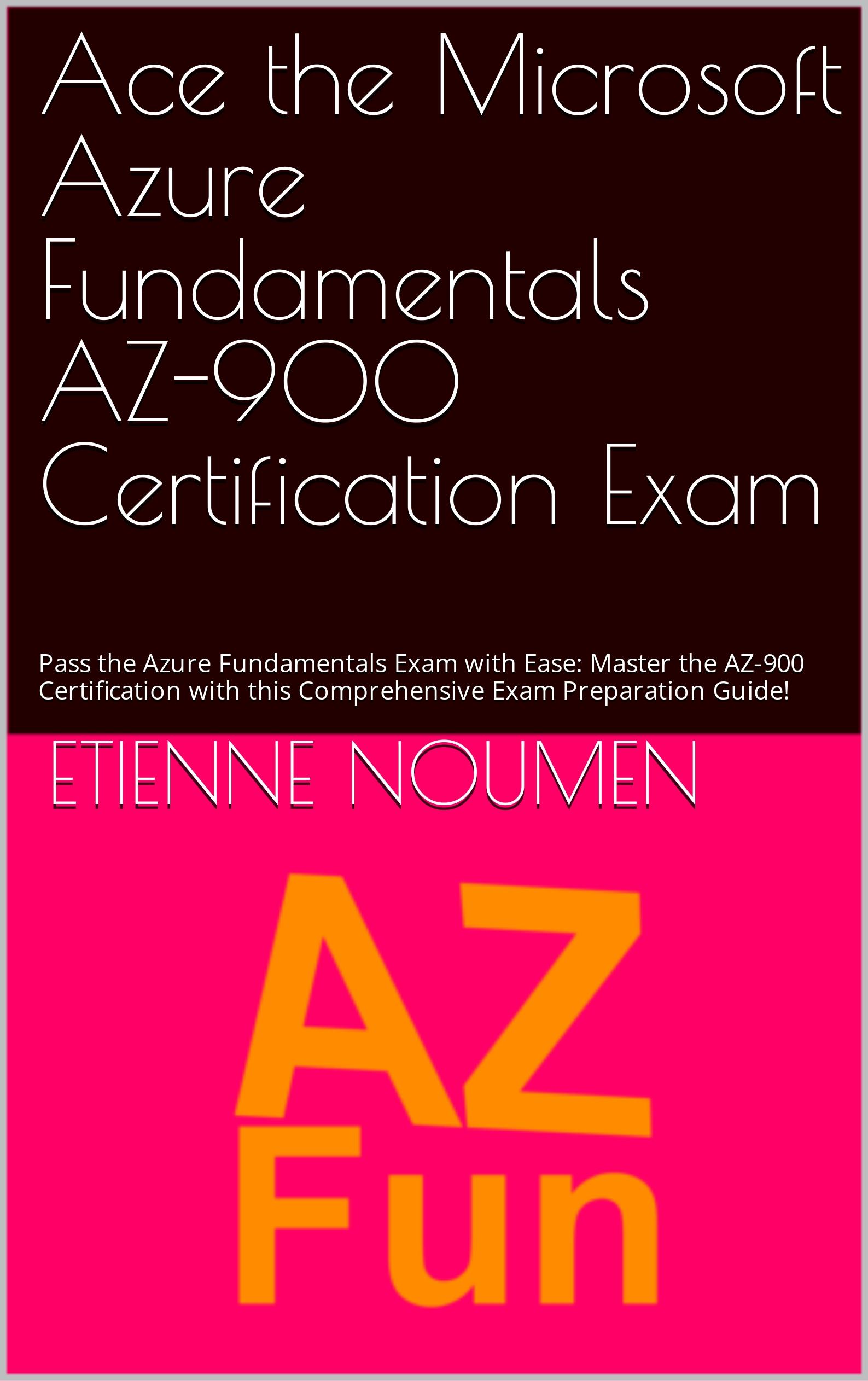

Djamgatech


Read Photos and PDFs Aloud for me iOS
Read Photos and PDFs Aloud for me android
Read Photos and PDFs Aloud For me Windows 10/11
Read Photos and PDFs Aloud For Amazon
Get 20% off Google Workspace (Google Meet) Business Plan (AMERICAS): M9HNXHX3WC9H7YE (Email us for more)
Get 20% off Google Google Workspace (Google Meet) Standard Plan with the following codes: 96DRHDRA9J7GTN6(Email us for more)

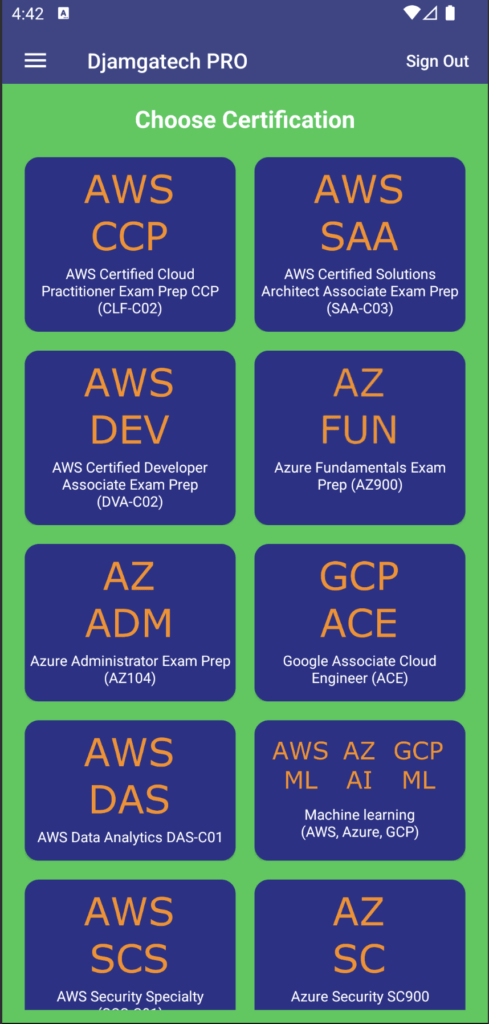

FREE 10000+ Quiz Trivia and and Brain Teasers for All Topics including Cloud Computing, General Knowledge, History, Television, Music, Art, Science, Movies, Films, US History, Soccer Football, World Cup, Data Science, Machine Learning, Geography, etc....
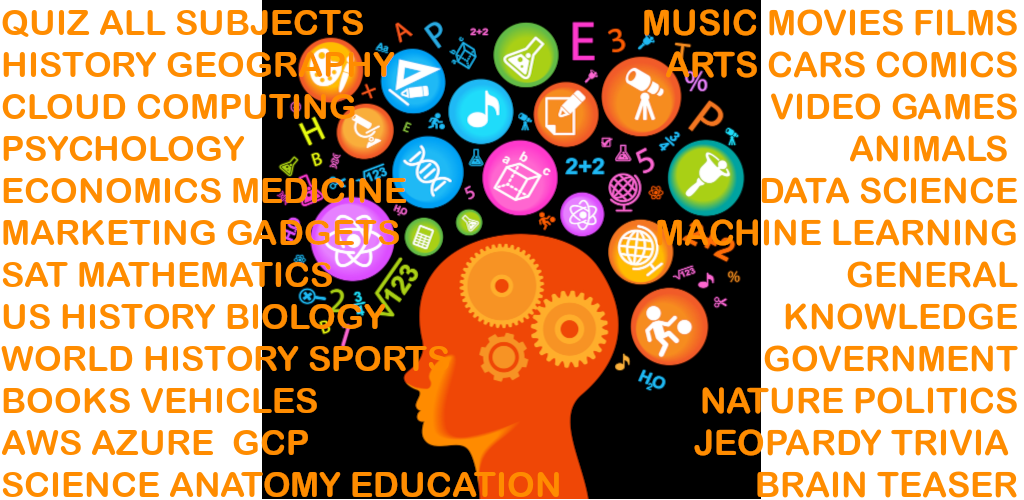


List of Freely available programming books - What is the single most influential book every Programmers should read
- Bjarne Stroustrup - The C++ Programming Language
- Brian W. Kernighan, Rob Pike - The Practice of Programming
- Donald Knuth - The Art of Computer Programming
- Ellen Ullman - Close to the Machine
- Ellis Horowitz - Fundamentals of Computer Algorithms
- Eric Raymond - The Art of Unix Programming
- Gerald M. Weinberg - The Psychology of Computer Programming
- James Gosling - The Java Programming Language
- Joel Spolsky - The Best Software Writing I
- Keith Curtis - After the Software Wars
- Richard M. Stallman - Free Software, Free Society
- Richard P. Gabriel - Patterns of Software
- Richard P. Gabriel - Innovation Happens Elsewhere
- Code Complete (2nd edition) by Steve McConnell
- The Pragmatic Programmer
- Structure and Interpretation of Computer Programs
- The C Programming Language by Kernighan and Ritchie
- Introduction to Algorithms by Cormen, Leiserson, Rivest & Stein
- Design Patterns by the Gang of Four
- Refactoring: Improving the Design of Existing Code
- The Mythical Man Month
- The Art of Computer Programming by Donald Knuth
- Compilers: Principles, Techniques and Tools by Alfred V. Aho, Ravi Sethi and Jeffrey D. Ullman
- Gödel, Escher, Bach by Douglas Hofstadter
- Clean Code: A Handbook of Agile Software Craftsmanship by Robert C. Martin
- Effective C++
- More Effective C++
- CODE by Charles Petzold
- Programming Pearls by Jon Bentley
- Working Effectively with Legacy Code by Michael C. Feathers
- Peopleware by Demarco and Lister
- Coders at Work by Peter Seibel
- Surely You're Joking, Mr. Feynman!
- Effective Java 2nd edition
- Patterns of Enterprise Application Architecture by Martin Fowler
- The Little Schemer
- The Seasoned Schemer
- Why's (Poignant) Guide to Ruby
- The Inmates Are Running The Asylum: Why High Tech Products Drive Us Crazy and How to Restore the Sanity
- The Art of Unix Programming
- Test-Driven Development: By Example by Kent Beck
- Practices of an Agile Developer
- Don't Make Me Think
- Agile Software Development, Principles, Patterns, and Practices by Robert C. Martin
- Domain Driven Designs by Eric Evans
- The Design of Everyday Things by Donald Norman
- Modern C++ Design by Andrei Alexandrescu
- Best Software Writing I by Joel Spolsky
- The Practice of Programming by Kernighan and Pike
- Pragmatic Thinking and Learning: Refactor Your Wetware by Andy Hunt
- Software Estimation: Demystifying the Black Art by Steve McConnel
- The Passionate Programmer (My Job Went To India) by Chad Fowler
- Hackers: Heroes of the Computer Revolution
- Algorithms + Data Structures = Programs
- Writing Solid Code
- JavaScript - The Good Parts
- Getting Real by 37 Signals
- Foundations of Programming by Karl Seguin
- Computer Graphics: Principles and Practice in C (2nd Edition)
- Thinking in Java by Bruce Eckel
- The Elements of Computing Systems
- Refactoring to Patterns by Joshua Kerievsky
- Modern Operating Systems by Andrew S. Tanenbaum
- The Annotated Turing
- Things That Make Us Smart by Donald Norman
- The Timeless Way of Building by Christopher Alexander
- The Deadline: A Novel About Project Management by Tom DeMarco
- The C++ Programming Language (3rd edition) by Stroustrup
- Patterns of Enterprise Application Architecture
- Computer Systems - A Programmer's Perspective
- Agile Principles, Patterns, and Practices in C# by Robert C. Martin
- Growing Object-Oriented Software, Guided by Tests
- Framework Design Guidelines by Brad Abrams
- Object Thinking by Dr. David West
- Advanced Programming in the UNIX Environment by W. Richard Stevens
- Hackers and Painters: Big Ideas from the Computer Age
- The Soul of a New Machine by Tracy Kidder
- CLR via C# by Jeffrey Richter
- The Timeless Way of Building by Christopher Alexander
- Design Patterns in C# by Steve Metsker
- Alice in Wonderland by Lewis Carol
- Zen and the Art of Motorcycle Maintenance by Robert M. Pirsig
- About Face - The Essentials of Interaction Design
- Here Comes Everybody: The Power of Organizing Without Organizations by Clay Shirky
- The Tao of Programming
- Computational Beauty of Nature
- Writing Solid Code by Steve Maguire
- Philip and Alex's Guide to Web Publishing
- Object-Oriented Analysis and Design with Applications by Grady Booch
- Effective Java by Joshua Bloch
- Computability by N. J. Cutland
- Masterminds of Programming
- The Tao Te Ching
- The Productive Programmer
- The Art of Deception by Kevin Mitnick
- The Career Programmer: Guerilla Tactics for an Imperfect World by Christopher Duncan
- Paradigms of Artificial Intelligence Programming: Case studies in Common Lisp
- Masters of Doom
- Pragmatic Unit Testing in C# with NUnit by Andy Hunt and Dave Thomas with Matt Hargett
- How To Solve It by George Polya
- The Alchemist by Paulo Coelho
- Smalltalk-80: The Language and its Implementation
- Writing Secure Code (2nd Edition) by Michael Howard
- Introduction to Functional Programming by Philip Wadler and Richard Bird
- No Bugs! by David Thielen
- Rework by Jason Freid and DHH
- JUnit in Action
#BlackOwned #BlackEntrepreneurs #BlackBuniness #AWSCertified #AWSCloudPractitioner #AWSCertification #AWSCLFC02 #CloudComputing #AWSStudyGuide #AWSTraining #AWSCareer #AWSExamPrep #AWSCommunity #AWSEducation #AWSBasics #AWSCertified #AWSMachineLearning #AWSCertification #AWSSpecialty #MachineLearning #AWSStudyGuide #CloudComputing #DataScience #AWSCertified #AWSSolutionsArchitect #AWSArchitectAssociate #AWSCertification #AWSStudyGuide #CloudComputing #AWSArchitecture #AWSTraining #AWSCareer #AWSExamPrep #AWSCommunity #AWSEducation #AzureFundamentals #AZ900 #MicrosoftAzure #ITCertification #CertificationPrep #StudyMaterials #TechLearning #MicrosoftCertified #AzureCertification #TechBooks
Top 1000 Canada Quiz and trivia: CANADA CITIZENSHIP TEST- HISTORY - GEOGRAPHY - GOVERNMENT- CULTURE - PEOPLE - LANGUAGES - TRAVEL - WILDLIFE - HOCKEY - TOURISM - SCENERIES - ARTS - DATA VISUALIZATION



Top 1000 Africa Quiz and trivia: HISTORY - GEOGRAPHY - WILDLIFE - CULTURE - PEOPLE - LANGUAGES - TRAVEL - TOURISM - SCENERIES - ARTS - DATA VISUALIZATION



Exploring the Pros and Cons of Visiting All Provinces and Territories in Canada.


Exploring the Advantages and Disadvantages of Visiting All 50 States in the USA



Health Health, a science-based community to discuss health news and the coronavirus (COVID-19) pandemic
- The pull-out method: Why this common contraceptive fails to deliverby /u/Kampala_Dispatch on July 26, 2024 at 7:51 pm
submitted by /u/Kampala_Dispatch [link] [comments]
- Health Canada data reveals surprising number of adverse cannabis reactions (spoiler: it's small)by /u/carajuana_readit on July 26, 2024 at 5:49 pm
submitted by /u/carajuana_readit [link] [comments]
- Online portals deliver scary health news before doctors can weigh inby /u/washingtonpost on July 26, 2024 at 4:37 pm
submitted by /u/washingtonpost [link] [comments]
- Vaccine 'sharply cuts risk of dementia' new study findsby /u/SubstantialSnow7114 on July 26, 2024 at 1:53 pm
submitted by /u/SubstantialSnow7114 [link] [comments]
- Calls to limit sexual partners as mpox makes a resurgence in Australiaby /u/boppinmule on July 26, 2024 at 12:31 pm
submitted by /u/boppinmule [link] [comments]
Today I Learned (TIL) You learn something new every day; what did you learn today? Submit interesting and specific facts about something that you just found out here.
- TIL that in Thailand, if your spouse cheats on you, you can legally sue their lover for damages and can receive up to 5,000,000 THB ($140,000 USD) or more under Section 1523 of the Thai Civil and Commercial Codeby /u/Mavrokordato on July 26, 2024 at 6:57 pm
submitted by /u/Mavrokordato [link] [comments]
- TIL that with a population of 170 million people, Bangladesh is the most populous country to have never won a medal at the Olympic Games.by /u/Blackraven2007 on July 26, 2024 at 6:49 pm
submitted by /u/Blackraven2007 [link] [comments]
- TIL a psychologist got himself admitted to a mental hospital by claiming he heard the words "empty", "hollow" and "thud" in his head. Then, it took him two months to convince them he was sane, after agreeing he was insane and accepting medication.by /u/Hadeverse-050 on July 26, 2024 at 6:44 pm
submitted by /u/Hadeverse-050 [link] [comments]
- TIL Senator John Edwards of NC, USA cheated on his wife and had a child with another woman. He tried to deny it but eventually caved and admitted his mistake. He used campaign funds and was indicted by a grand jury. His life story inspired the show "The Good Wife" by Robert & Michelle Kingby /u/AdvisorPast637 on July 26, 2024 at 6:09 pm
submitted by /u/AdvisorPast637 [link] [comments]
- TIL Zhang Shuhong was a Chinese businessman who committed suicide after toys made at his factory for Fisher-Price (a division of Mattel) were found to contain lead paintby /u/Hopeful-Candle-4884 on July 26, 2024 at 4:43 pm
submitted by /u/Hopeful-Candle-4884 [link] [comments]
Reddit Science This community is a place to share and discuss new scientific research. Read about the latest advances in astronomy, biology, medicine, physics, social science, and more. Find and submit new publications and popular science coverage of current research.
- Human decision makers who possess the authority to override ML predictions may impede the self-correction of discriminatory models and even induce initially unbiased models to become discriminatory with timeby /u/f1u82ypd on July 26, 2024 at 6:29 pm
submitted by /u/f1u82ypd [link] [comments]
- Study uses Game of Thrones (GOT) to advance understanding of face blindness: Psychologists have used the TV series GOT to understand how the brain enables us to recognise faces. Their findings provide new insights into prosopagnosia or face blindness, a condition that impairs facial recognition.by /u/AnnaMouse247 on July 26, 2024 at 5:14 pm
submitted by /u/AnnaMouse247 [link] [comments]
- Specific genes may be related to the trajectory of recovery for stroke survivors, study finds. Researchers say genetic variants were strongly associated with depression, PTSD and cognitive health outcomes. Findings may provide useful insights for developing targeted therapies.by /u/AnnaMouse247 on July 26, 2024 at 5:08 pm
submitted by /u/AnnaMouse247 [link] [comments]
- New experimental drug shows promise in clearing HIV from brain: originally developed to treat cancer, study finds that by targeting infected cells in the brain, drug may clear virus from hidden areas that have been a major challenge in HIV treatment.by /u/AnnaMouse247 on July 26, 2024 at 4:57 pm
submitted by /u/AnnaMouse247 [link] [comments]
- Rapid diagnosis sepsis tests could decrease result wait times from days to hours, researchers report in Natureby /u/Science_News on July 26, 2024 at 3:50 pm
submitted by /u/Science_News [link] [comments]
Reddit Sports Sports News and Highlights from the NFL, NBA, NHL, MLB, MLS, and leagues around the world.
- Charles Barkley leaves door open to post-TNT job optionsby /u/PrincessBananas85 on July 26, 2024 at 8:47 pm
submitted by /u/PrincessBananas85 [link] [comments]
- Report: Nuggets sign Westbrook to 2-year, $6.8M dealby /u/Oldtimer_2 on July 26, 2024 at 8:13 pm
submitted by /u/Oldtimer_2 [link] [comments]
- Dolphins signing Tua to 4-year, $212.4M extensionby /u/Oldtimer_2 on July 26, 2024 at 8:09 pm
submitted by /u/Oldtimer_2 [link] [comments]
- Rams cornerback Derion Kendrick suffers season-ending torn ACLby /u/Oldtimer_2 on July 26, 2024 at 8:06 pm
submitted by /u/Oldtimer_2 [link] [comments]
- Hosting the Olympics has become financially untenable, economists sayby /u/toaster_strudel_ on July 26, 2024 at 7:34 pm
submitted by /u/toaster_strudel_ [link] [comments]
Turn your dream into reality with Google Workspace: It’s free for the first 14 days.
Get 20% off Google Google Workspace (Google Meet) Standard Plan with the following codes:
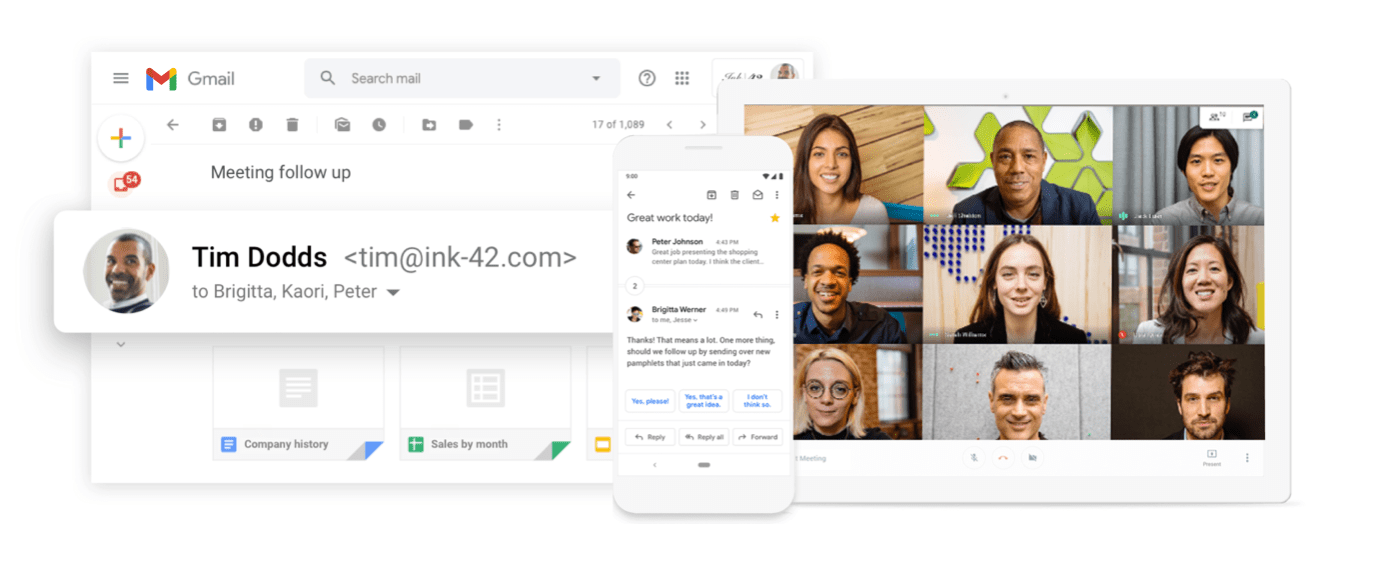

 96DRHDRA9J7GTN6
96DRHDRA9J7GTN6
63F733CLLY7R7MM
63F7D7CPD9XXUVT
63FLKQHWV3AEEE6
63JGLWWK36CP7WM
63KKR9EULQRR7VE
63KNY4N7VHCUA9R
63LDXXFYU6VXDG9
63MGNRCKXURAYWC
63NGNDVVXJP4N99
63P4G3ELRPADKQU
With Google Workspace, Get custom email @yourcompany, Work from anywhere; Easily scale up or down
Google gives you the tools you need to run your business like a pro. Set up custom email, share files securely online, video chat from any device, and more.
Google Workspace provides a platform, a common ground, for all our internal teams and operations to collaboratively support our primary business goal, which is to deliver quality information to our readers quickly.
Get 20% off Google Workspace (Google Meet) Business Plan (AMERICAS): M9HNXHX3WC9H7YE
C37HCAQRVR7JTFK
C3AE76E7WATCTL9
C3C3RGUF9VW6LXE
C3D9LD4L736CALC
C3EQXV674DQ6PXP
C3G9M3JEHXM3XC7
C3GGR3H4TRHUD7L
C3LVUVC3LHKUEQK
C3PVGM4CHHPMWLE
C3QHQ763LWGTW4C
Even if you’re small, you want people to see you as a professional business. If you’re still growing, you need the building blocks to get you where you want to be. I’ve learned so much about business through Google Workspace—I can’t imagine working without it. (Email us for more codes)



